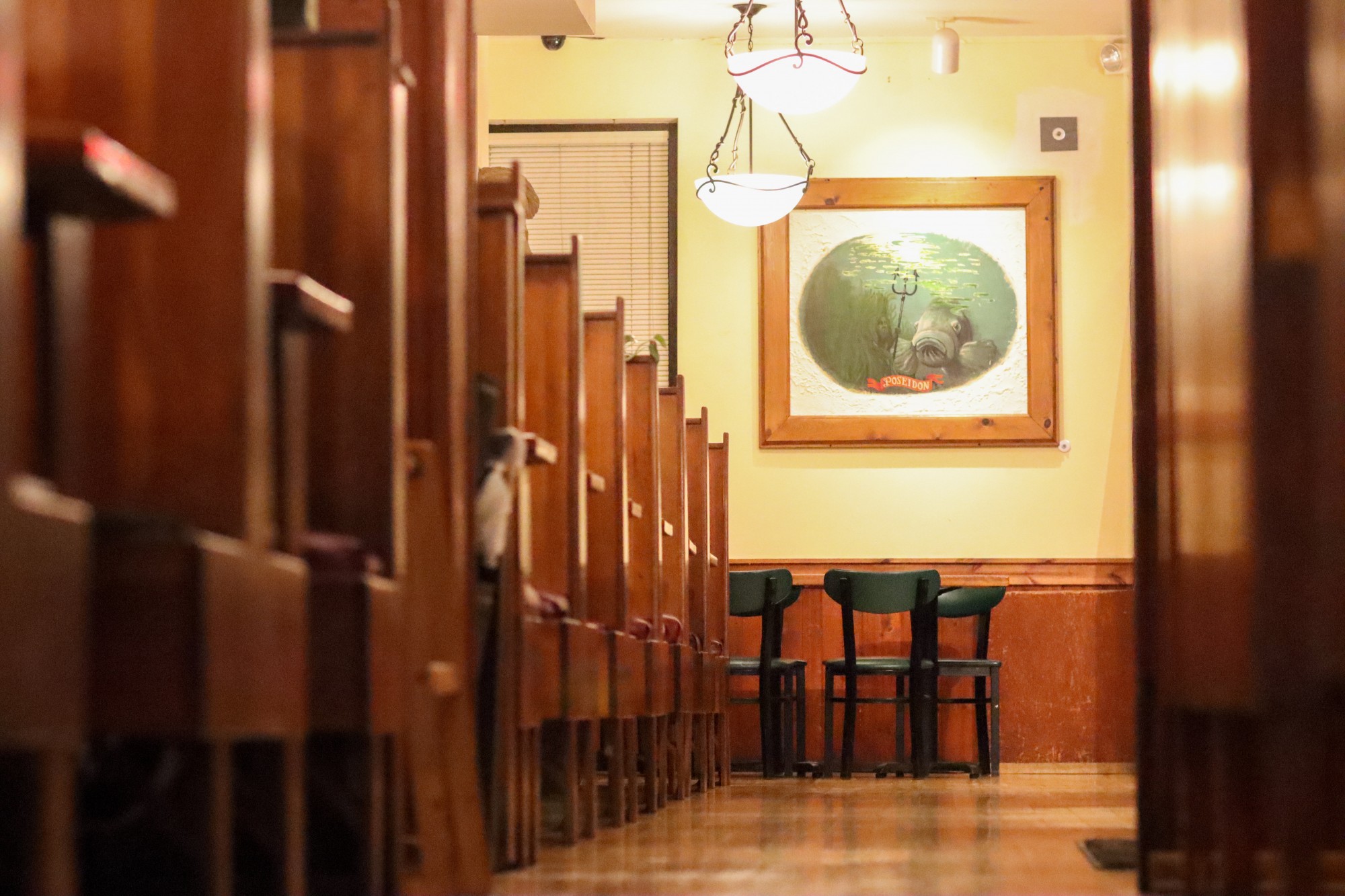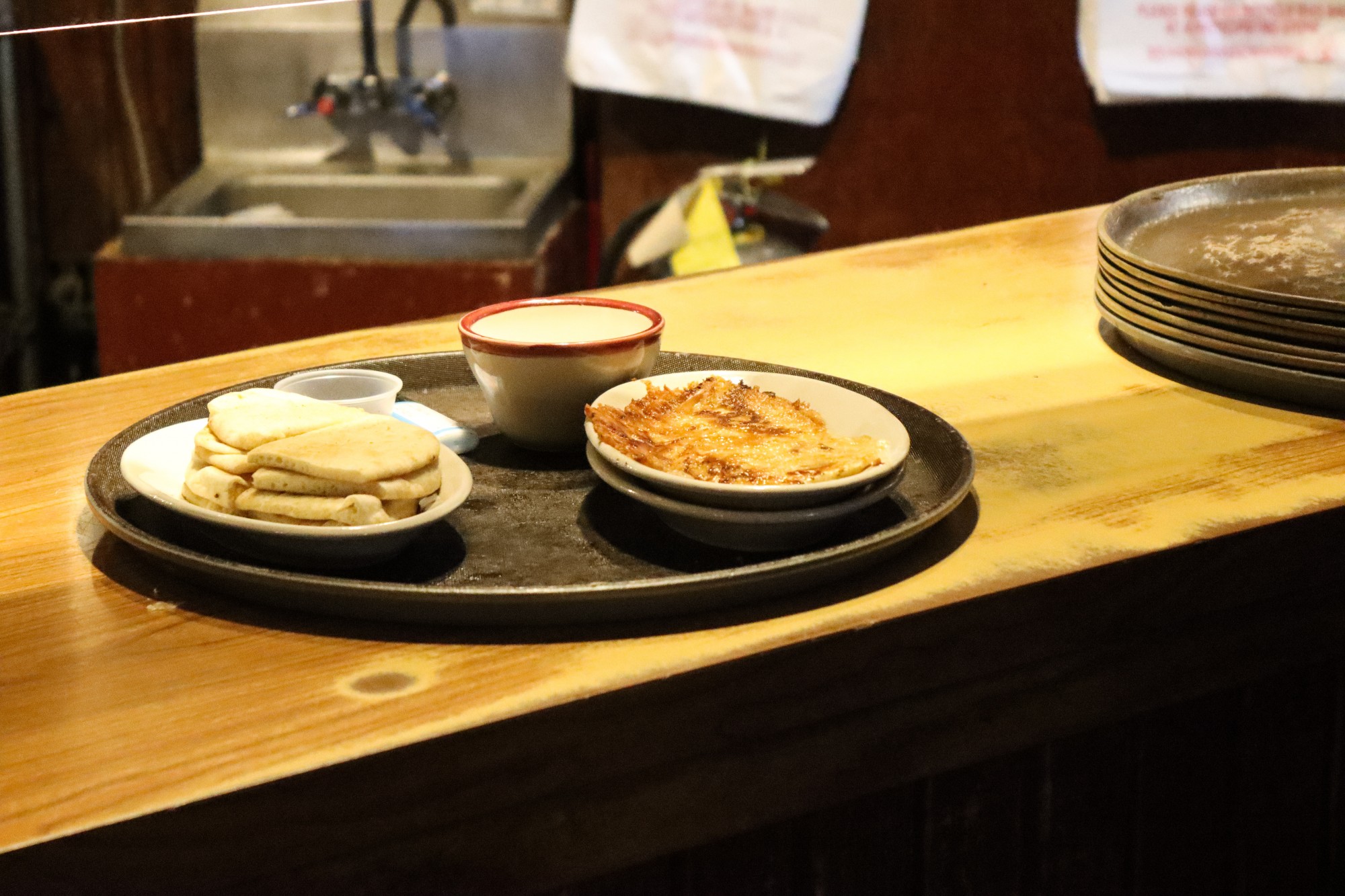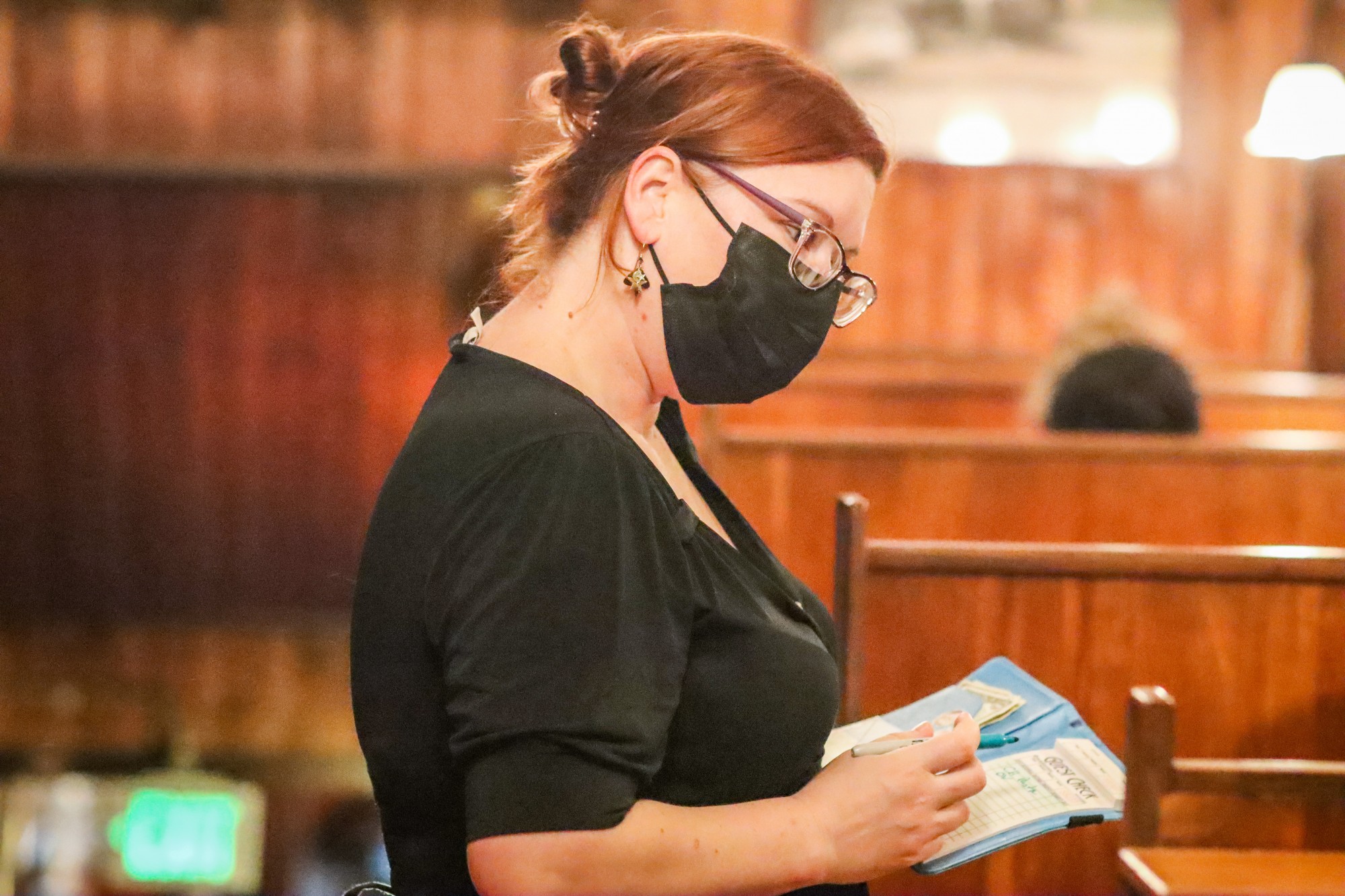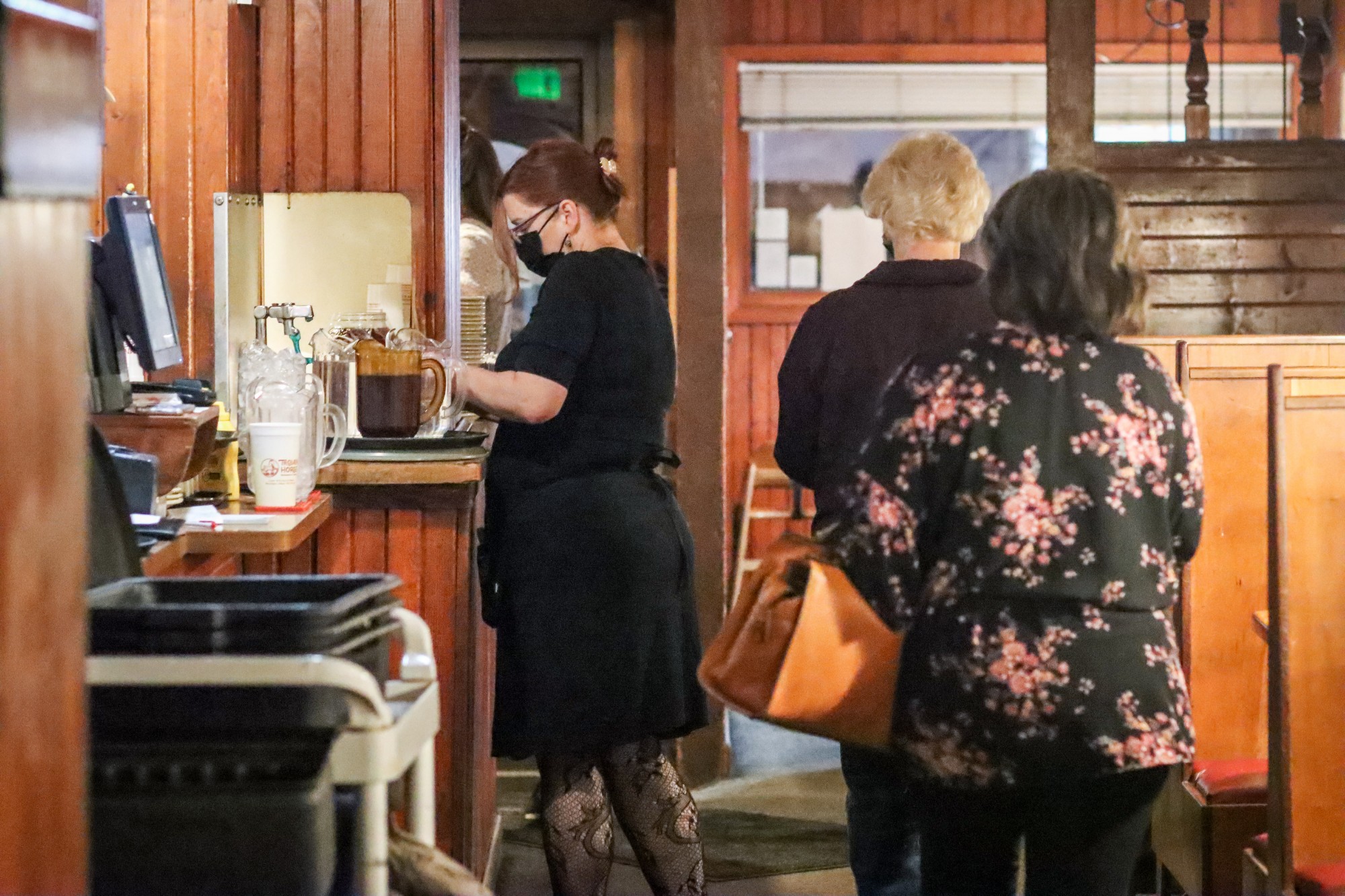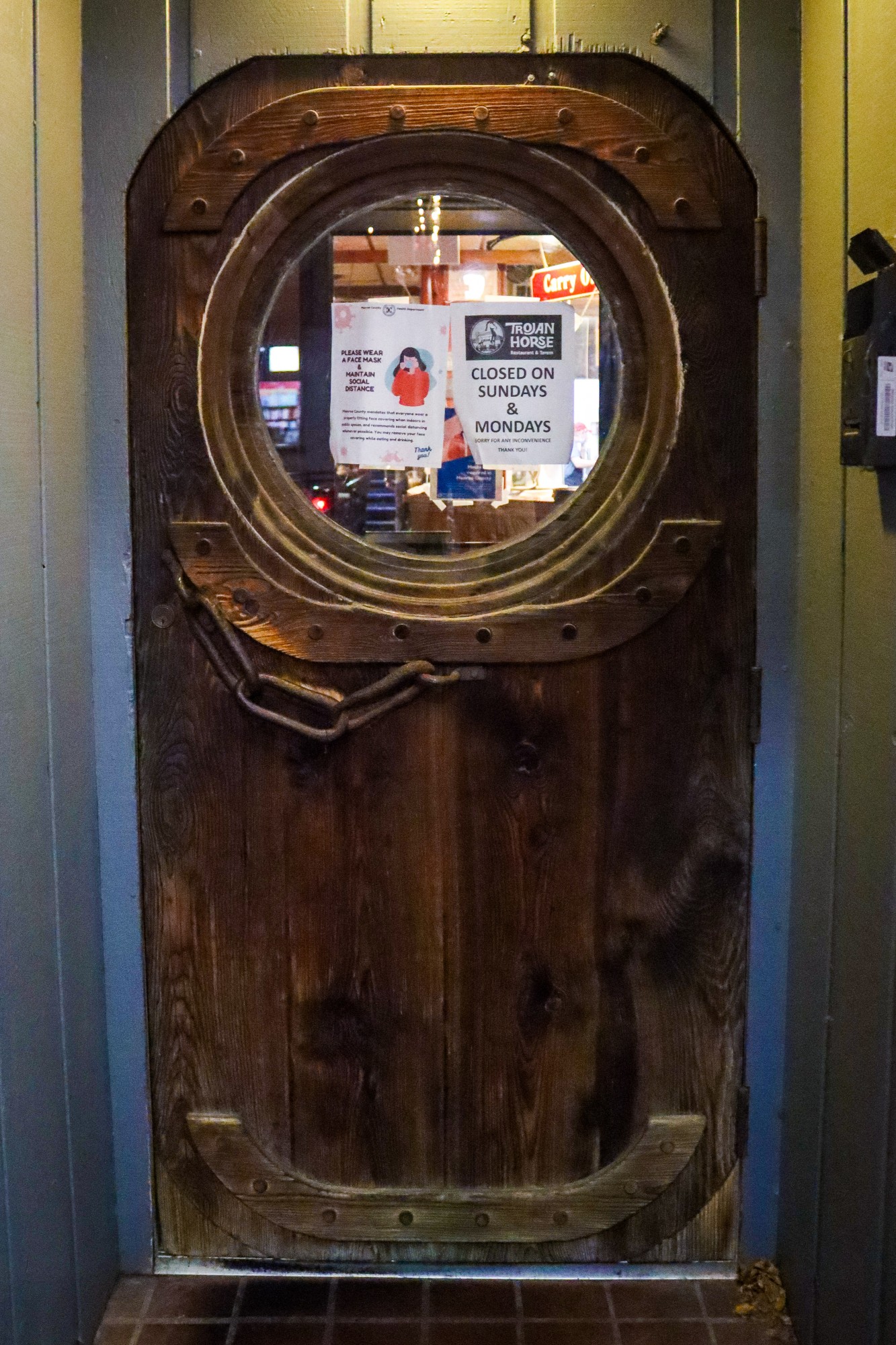How the Trojan Horse is surviving the Great Resignation
The phone rings, again. Justin Posthuma dashes across the narrow kitchen to pick up.
“Thanks for calling Trojan Horse, what can we get for you?”
He calls out the order to the line cook manning the grill. Within five minutes, a stack of gyros and pitas sit on the restaurant’s front counter, ready for pick up.
Posthuma scrubs plates and pots and runs them through the commercial dishwasher. He negotiates a work schedule with a new employee. He refills ice baths to chill tubs of chopped veggies that don’t fit in the Trojan Horse’s fridge. He hurries back to the ringing phone.
At 1:30 p.m., Posthuma is six hours into his Wednesday shift as the restaurant manager at the Trojan Horse. Business is slow, but his to-do list is infinite. It’s been that way for months, as the restaurant grapples with the fallout from COVID-19. Not only have profits dropped since the start of the pandemic, the Trojan Horse has also faced a severe staffing shortage.

Last spring, a full kitchen staff dwindled to zero, leaving Posthuma and the owner to take over the cooking. Bartenders and floor managers became a thing of the past. Seven days a week turned to five and weekday closing time shifted from 11 p.m. to 8.
“When the world ended,” Posthuma said, “it flipped everything upside down.”
A couple blocks from the Trojan Horse, a paper sign hangs in the window of Potbelly Sandwich Shop.
Due to staffing challenges, we have temporarily limited operating hours. We apologize for any inconvenience.
Not all Bloomington restaurants have survived the tumult of the pandemic. Darn Good Soup, the Pourhouse Cafe, Grazie Italiano and Laughing Planet are among the casualties. The ones that remain are dealing with smaller crowds, supply chain problems and hiring shortages.
Sheets of printer paper adorn the storefronts of most restaurants on Kirkwood, like white flags of surrender. Taped-up signs at Lennie’s, Noodles & Company and BuffaLouie’s announce newly reduced hours. Almost every restaurant has a sign encouraging job applicants.
The Trojan Horse’s front door reads, CLOSED ON SUNDAYS & MONDAYS. SORRY FOR ANY INCONVENIENCE! THANK YOU!
